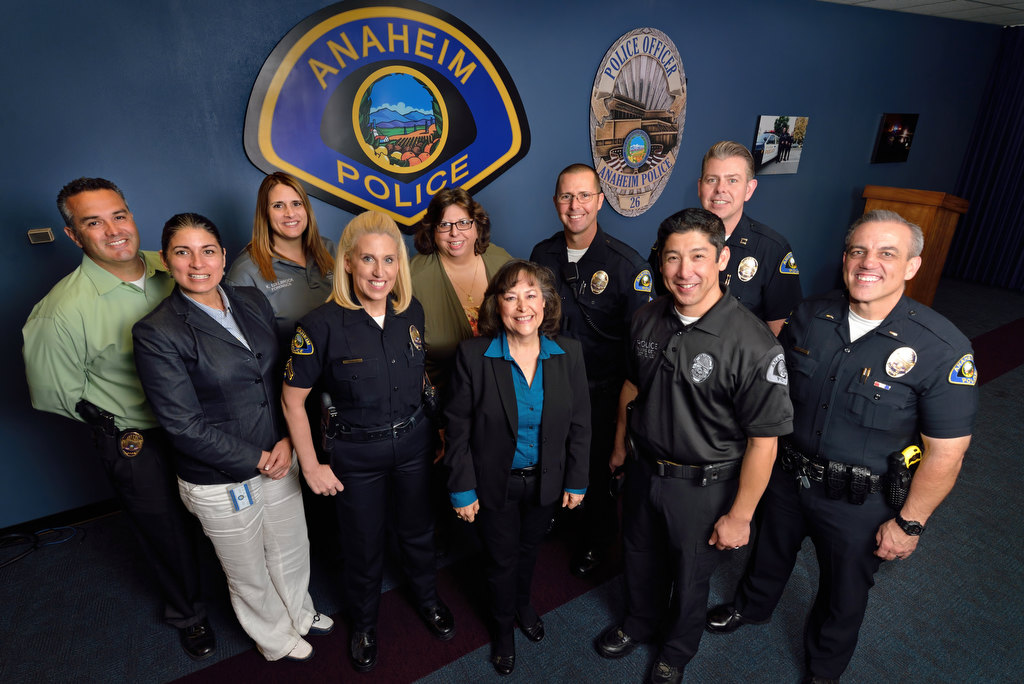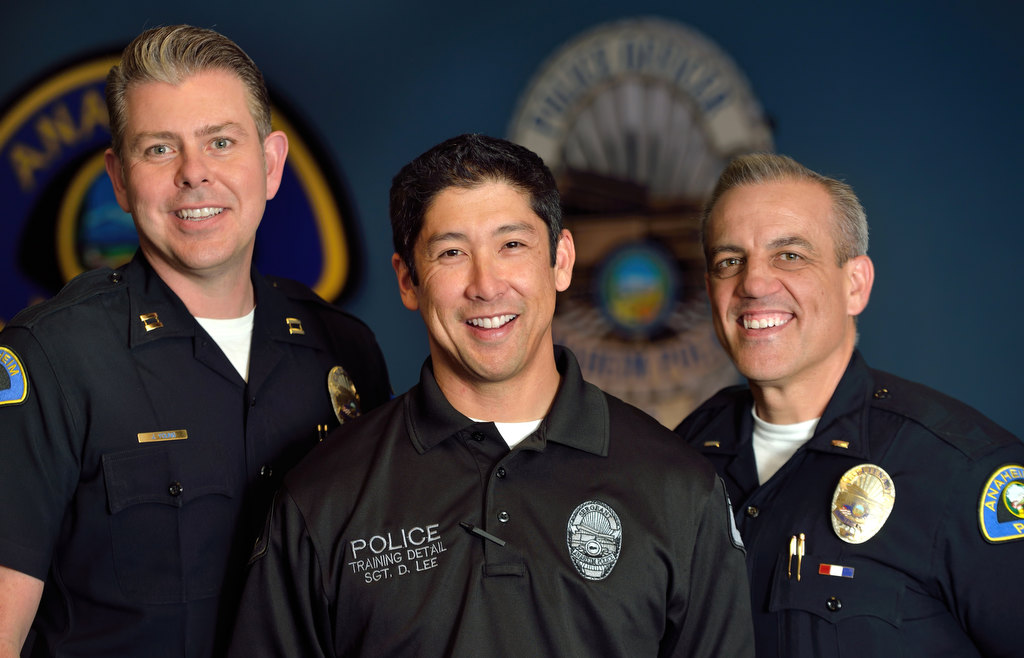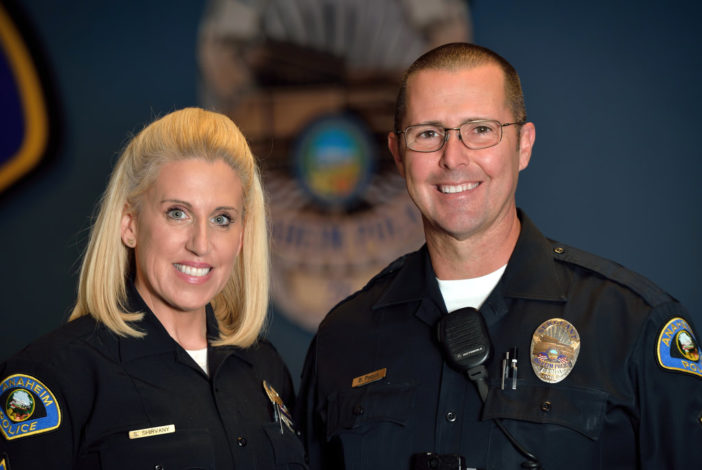Anaheim Police Officer Sarah Shirvany knows first hand about the importance of emotional support in law enforcement.
A police officer for 14 years with a total of 23 years in law enforcement, she saw her world turn upside down following a back injury requiring three surgeries and a lot of time out of work. She suffered severe pain and depression.
“We’re active. We want to be at work,” Shirvany says. “There’s a kind of isolation when you’re injured at home and not being able to work.”
Fortunately, since she was already involved with Anaheim PD’s Peer Support Team, which was developed three years ago for situations like these, she knew to ask for help.
Peer supporters did everything from bringing Shirvany coffee and treats with a signed card and a big, fuzzy blanket to bringing her dinners so she wouldn’t have to cook. A detective arrived with flowers and a female officer helped her shave her legs when she couldn’t do it herself.
“What got me through it was my fellow peer supporters,” Shirvany says.

Anaheim PD Peer Support Team members who offer comfort and support with stressful situations that occur with the job.
Photo by Steven Georges/Behind the Badge OC
Dealing with the Stigma
Shirvany says current statistics show that police suicide averages about 130 a year nationally, alhough she suspects that number is actually higher.
“Police suicides really aren’t documented,” she says. “It’s very taboo when police officers kill themselves.”
She has known officers who have committed suicide for various reasons.
“In law enforcement, we have to be ‘tough’ and have a ‘thick skin,’” says Shirvany. “We say we’re ‘fine’ and things don’t bother us. So when we do need help it is not easy to let our guard down and say, ‘I’m exhausted, stressed, depressed or need help,” without judgment or embarrassment. That is why it is so important to preserve confidentiality of anyone who uses peer support. This is critical.”
How Peer Support Helps
The Peer Support Team currently has 20 members and the group hopes to add five more positions in the near future. These are voluntary positions filled by both sworn and civilian professional staff, including records specialists, civilian investigators, forensics specialists, communications officers, police officers, sergeants and lieutenants. The team is overseen by a captain. Training is done through The Counseling Team International.
Peer supporters make themselves available to any member of police personnel during times of personal or professional crisis. Anyone using the service can say anything about a personal problem or job-related issue and be confident that trust, anonymity and privacy will be maintained.
“Police work is very stressful, and most who do this job are likely to experience or witness violence and death,” Shirvany says. “These types of daily stresses [have]an impact on a person’s physical and mental well-being, and can accumulate over the course of a career. Some of the struggles can lead to alcohol abuse, depression, suicidal thoughts, post-traumatic stress disorder and impact your home or personal life.”

Anaheim PD’s Capt. Jarret Young, left, Sgt. Darren Lee and Lt. Richard LaRochelle of the APD Peer Support Team.
Photo by Steven Georges/Behind the Badge OC
All jobs in law enforcement can come with a heavy emotional price. For instance, record specialists have to read or transcribe graphic police reports; forensics specialists respond to crime scenes and see horrific crimes and deaths; police cadets work the front counter, dealing with hundreds of people daily; communications officers constantly deal with frantic callers; officers have work stress every single day; and command staff deals with the high stress of police operations.
“I think in most situations law enforcement personnel are comfortable talking exclusively to peers about certain situations,” Shirvany says. “We can relate to each other and have the belief that our peers can understand what they experience on the job or with a personal problem.”
If more help is needed, they offer that too – peer support offers a 24/7 referral service for anyone who needs professional help. The licensed professionals are carefully selected by the team to make sure they understand the stress of working in law enforcement. Chaplain services are also offered if spiritual support is needed. Peer supporters are available 24/7 via phone or in person.
“We respond to officer-involved shootings, any type of critical incident or any event that may have an impact on an officer mentally or physically,” Shirvany says. “We also host fundraisers if we have a family in need. We send cards to those who are off work, [have]a promotion, a baby, birthday or any important event, all hand-signed by all of the Peer Support Team.”
Shirvany feels strongly that peer support-type programs should be offered at every police agency in the country. She is happy to see many Orange County police agencies providing peer support, including Tustin, Santa Ana, Garden Grove, Buena Park, Fullerton, Irvine, Brea and Westminster, to name a few. In 2015, APD’s peer supporters provided approximately 1,000 hours assisting police personnel.
“The mentality of helping our personnel should be part of our everyday operations,” Shirvany says. “I also believe that mental health preparedness in the job should be started in the academy, and we should create this awareness and mindset from day one.”
 Behind the Badge
Behind the Badge



